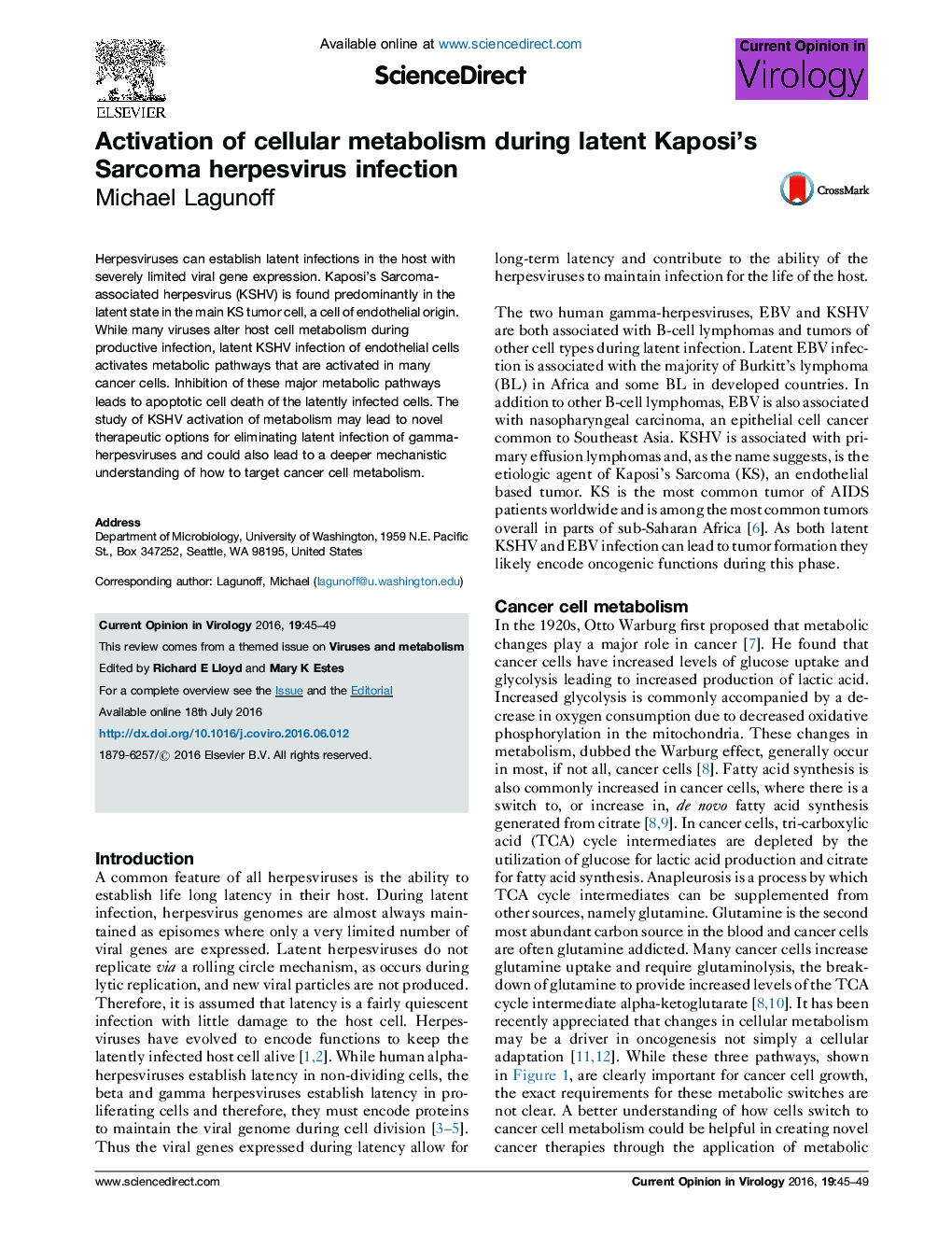| Article ID | Journal | Published Year | Pages | File Type |
|---|---|---|---|---|
| 2473181 | Current Opinion in Virology | 2016 | 5 Pages |
•KSHV latent infection of endothelial cells activates glycolysis, fatty acid synthesis and glutaminolysis.•Inhibitors of each of these metabolic pathways leads to apoptotic cell death of latently infected endothelial cells.•Metabolic inhibitors may be useful to treat latent infection of KSHV.•KSHV induction of cancer cell-like metabolism could provide novel keys to understanding the control of cancer cell metabolism.
Herpesviruses can establish latent infections in the host with severely limited viral gene expression. Kaposi's Sarcoma-associated herpesvirus (KSHV) is found predominantly in the latent state in the main KS tumor cell, a cell of endothelial origin. While many viruses alter host cell metabolism during productive infection, latent KSHV infection of endothelial cells activates metabolic pathways that are activated in many cancer cells. Inhibition of these major metabolic pathways leads to apoptotic cell death of the latently infected cells. The study of KSHV activation of metabolism may lead to novel therapeutic options for eliminating latent infection of gamma-herpesviruses and could also lead to a deeper mechanistic understanding of how to target cancer cell metabolism.
